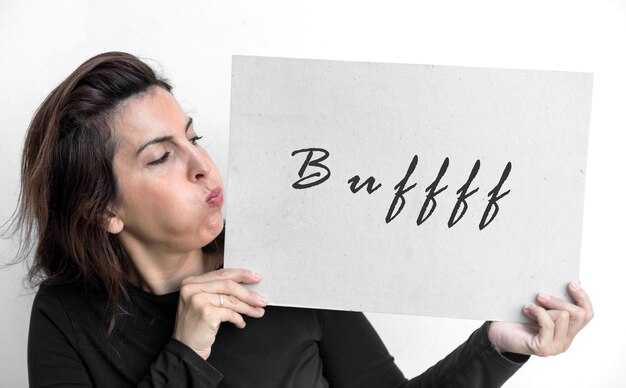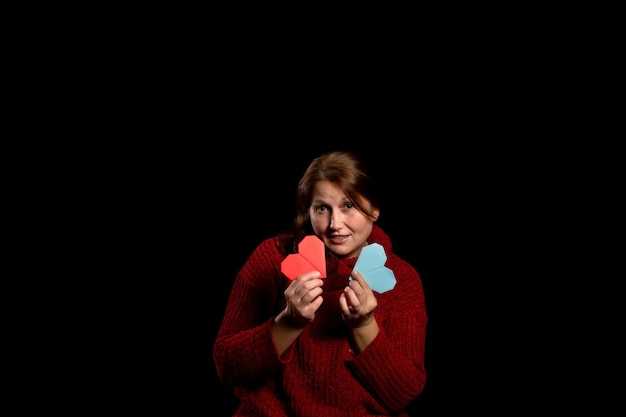People adore stories of dramatic turnarounds: someone drifts through a life full of pain, addiction and trauma, and then, after one single fortunate event, everything magically becomes perfect. That shiny, sugar‑coated storyline plays well on social media and TV, but it’s misleading and unhelpful for anyone who is actually trying to recover from trauma-driven problems. The truth about healing is harsher: the injuries that made you vulnerable in the first place remain open wounds even when outward symptoms begin to ease. Loneliness, fear, chronic exhaustion from surviving trauma — these things linger. You still wrestle with belonging, mourn everything you lost, and fear that ordinary goods of life will forever be out of reach. I know that in-between stage intimately, because I lived through it. The letter I’m answering today, from a woman I’ll call Bridget, needs an honest, tender response. It’s not easy to hear, and you can stay with me if you want — you may find my reply useful, or you may not. But for Bridget I have to tell the truth about how I made it through that brutal gap between pre-recovery and real, lasting change. There was a very hard stretch in the middle, and here’s what she wrote.
Dear Anna — I’m writing because I’m full of frustration and resentment toward people around me and society in general. I’m thirty and everyone I know seems to be settling down — marrying, buying houses, having babies. Every time I hear someone announcing engagement, pregnancy, a new home, etc., I get angry and resentful. I’ve been using your daily practice to try to understand why. Maybe I’m jealous and ought to be looking for a husband or thinking about children, but more and more it feels like I’m not jealous of their lives — I’m jealous that they seem to be idiots who just get to do whatever they want and nothing bad happens to them. I’ve had such a difficult life and I’ve worked so hard to be a decent person: being sober, living healthier, taking responsibility, trying to be stable. Yet it boggles my mind that people with terrible habits — alcoholics, heavy weed users, people in volatile relationships who never self-reflect — somehow find partners willing to tolerate their mess. Meanwhile I’m dealing with CPTSD meltdowns, and then I hear about a coworker who threw a pot at her boyfriend in front of her kid, and they’re still together with no consequences. I’m trying to improve myself and it’s made me lonelier than when I was a wreck. Back then I always had men around who would talk to me or wanted to marry me; now I have no one, while people I knew remain wrecked but not alone. My recovery feels like it’s isolating me. I am at a loss. I feel surrounded by a crazy world and my refusal to participate in that craziness is making me so alone. I’m angry — even at my own recovery. Sometimes I think I shouldn’t have tried to get better; at least if I’d stayed messed up and drunk I would’ve kept my old boyfriend, even though the relationship was awful. Looking back it feels like none of it mattered — he could’ve had kids with an abusive, terrible mom and nobody would care. I don’t know what to do with this resentment toward people who seem to never change yet still end up with a family, a house, or some blessing. That’s it — from Bridget.
Bridget, I hesitated before answering because this touches on something deeply personal to me — my spiritual life — and I usually keep that private. Still, I recognize exactly what you’re describing because I’ve had very similar thoughts, and now that I’m on the other side I can say what it took to get here. What you’re hearing in yourself sounds like trauma and depression talking. It’s the reasoning of woundedness: “I’d rather be in a relationship, even if it’s chaotic, than be lonely.” What’s missing for you right now is the presence of someone steady to share life with, and being alone is brutal; loneliness often accompanies trauma. I remember comparing myself to people who looked just as wrecked and yet had partners, and it stung. But the visible reality is usually not what it seems; many of those relationships don’t last. This world is not a simple place where everyone horrible gets away with it and you alone are barred from connection.
Let’s be factual: your rage is understandable, but it’s not attractive to someone who might build a relationship with you — and that’s purposeful. Right now you’re a bundle of raw nerves; anyone who tries to get close will likely face painful consequences from being near that intensity. That’s not a criticism so much as a comfort: there’s a reason you’re still carrying these feelings, and this is exactly the time when being single is appropriate. It’s okay to be thirty and single. I was single through long stretches of my life — a brief marriage in my thirties, kids from that time, raising them as a divorced mom, and another marriage near fifty. I often wondered why it was so hard for me compared with others who seemed to have it easier. My conclusion is that trauma leaves different degrees of injury. When you grow up traumatized, your internal alarm system — your red-flag detector — can be damaged. Trauma can numb you to how you affect others and make it difficult to read people and situations. That’s a tragic consequence.
When you point to drinking or volatile behavior, the people who tolerate that are usually troubled as well; they often have deep problems that make them likely to accept chaos. I understand the desire for a quick fix — someone to sit with you now and keep you afloat while you weather the inner storm. But paradoxically, it’s better you don’t have that temporary safety net, because it can distract from the inner growth you need. Childhood trauma arrests development in certain ways: you can’t always tell if someone’s safe, how to hold hard conversations, or how to notice healthy cues. Unless an extraordinary person arrives who can love you despite that, relationships will often reproduce old patterns. People who are in a stable place and capable of giving love can usually see more clearly and spot someone struggling. You’re not a broken person by nature — you are in a wounded place right now and you need time and work to heal.
From your letter I gather you got sober and feel it should have made life simpler, happier. Alcohol wasn’t my issue, but I spent years in 12‑step work and then I stopped after my first marriage ended. I became cynical, lost faith, and after an initial period things went very dark. My decisions worsened, trouble followed, and people were hurt — including my children. Eventually I knew I couldn’t go back to that way of living. Many people say, “I’ll heal and then find a good relationship,” as if healing is an instant purchase. It’s not effortless or instantaneous. But there is a way forward, and I teach methods that helped me. You said you’ve been using my daily practice, but the resentment you described shows you could benefit from working with the foundational technique I started thirty years ago. It steadied my mind and spirit, helped me regulate emotions, and put me on a level playing field to address life’s problems. It helps many people. You can only know if it helps you by trying it; it’s free. There’s a free course, and my book Re‑regulated is available on Amazon and other sellers — there’s a link in the description. If you prefer to learn the technique directly, the free course teaches it, and I lead Zoom daily practice calls twice a week so people can come learn the finer points.
Some newcomers expect immediate transformation — “I’ll do this once and everything will change.” But the daily practice is actually a disciplined way to face what’s inside so you can begin to release toxic thoughts and feelings that run the show. At first you won’t be able to distinguish which feelings are toxic and which are ordinary worries, so you put everything on the page. Through a spiritual intention, you ask for the burden to be removed, then rest your mind and nervous system in meditation. Convincing people that something so simple can help is often the hardest part of the job because so many have tried one thing after another and been disappointed. My message is: relax into this practice first; you can add other tools later. Do this practice and start to let the jammed-up thoughts and feelings loosen their grip.
Trauma literally makes it hard to process negative emotions — it creates noise in your system. That noise is structured: it’s pain, future anxiety, rage at injustice, and that colorings warp perception because your mind can’t properly process and integrate those experiences into memory. Instead they stay active and dictate how you see the world. But when you learn how to free yourself from that influence, everything changes. It’s not magical and won’t stay gone forever — thoughts and feelings will return and you’ll write them down again, but with persistent practice most of it lifts over time. I use a toothbrush analogy: you don’t brush just once in 1972 and think you’re done; you brush twice a day. Similarly, do the daily practice regularly — many people do it twice a day.
If you join the membership, you’ll find a community: a Facebook group, many practice calls led by long‑time members, and consistent peer support. Healing trauma is partly irrational and partly physiological, and the two reliable levers are consistent tools that let you face stress and move it out, and staying connected to people who are walking the same path. You might be resentful now, but in community you’ll meet folks who are not stuck in resentment all the time. When we gather, those who are steadier can encourage the rest: “Sit down, write, read it to me when you’re done.” There’s concrete mutual support so you can process painful material without being defined by it. Growing up with trauma is like living in a hoarder’s house of memories: there’s useful, healthy stuff in there, but also so much clutter. Putting it on the page a couple times a day lets you rinse off the detritus and keep what matters.
I dislike the phrase “just let it go” because complex PTSD isn’t something you can will away in a single act. It’s embedded neurologically and physiologically, so you can’t simply decide to release it. What you can do is name it, face it, and keep working a structured practice to allow it to move on. There’s pre-verbal material — trauma from before you had language — that shapes your cortisol responses and triggers primitive brain circuits. You are not in full control of that, but you can use re‑regulation practices to reshape how your nervous system responds. Over time you can “un‑groove” chronic dysregulation and re‑groove toward calm and attention. Having a calmer mind is a level playing field: it allows you to spot red flags and opportunities, instead of having trouble detect them and watching opportunities slip away. So yes, perseverance matters now, and going deeper into practice matters.
Now for the spiritual piece: some viewers don’t like spiritual talk — if that’s you, feel free to stop here. But for many of us, getting through the anger at the hand we were dealt, and the resentment at God or fate, became a spiritual process. For me, certain prayers that came from a place of utter desperation — when I was on the floor and out of options — invited a calmness that felt like a miracle. Even when I’d lost belief, I asked simply to be shown what to do, and a quiet came. In several of the hardest moments, that quiet allowed me to sleep and then to think, and when you can sleep and think again, new possibilities appear. That calmness allowed me to start taking constructive action. My spiritual experience wasn’t dramatic thunderbolts — it was a subtle, steady presence that stopped the desperation and helped me move in small, right directions. When anger and resentment are running through you, they have to be put somewhere; the daily practice gives them a place. You can name things like “resentment at God,” “fear that life is unfair,” or “unworthiness,” write them down and sit with them — you don’t have to fix them on the spot. But it’s intensive work to face those fears, and it’s important to meditate afterward. This process is about naming and releasing through repeated practice.
If you’re new to this, don’t try a half-hearted version and then quit because it didn’t work perfectly; learn it properly. Get the book Re‑regulated or sign up for the free course so you can watch the videos and read through the FAQ. Some people like video, others like audio or the printed book — choose what helps you learn. The book answers many common questions: why we name feelings in certain ways, how long to meditate, and more. Over time, this technique has helped many people. Research supports expressive writing and meditation — Dr. James Pennebaker’s work on expressive writing and other peer‑reviewed studies show therapeutic benefit from writing, and meditation has a large evidence base as well. If childhood PTSD leaves you neurologically dysregulated, doing practices that combine expressive writing plus meditation can make sense as a simple, daily way to remove residue from the day and from sleep, and to reduce unexpected mood shifts that lead to reflexive reactions and distance others.
Distress changes your nervous system in ways that other people can sense, even if they can’t put it into words. People notice “vibes” — some make you feel peaceful, others tense. If your system is noisy, people often pull back. That was true for me in my long dark nights of the soul: others could feel my state and the energy made connection difficult. Ironically, having people would have helped, but I couldn’t form the connections I needed. In those seasons I developed my spirituality because I lacked people who could help me; I turned to a higher power and it helped. Some prayers are answered in small ways: not necessarily the exact outcomes we imagine, but guidance on how to proceed. Asking “Could you show me what to do?” often leads to practical direction when later opportunities arise.
So persevere. Join the calls. If you come to a Zoom daily practice and want to, send a DM and say it’s you — I’d like to hear how it’s going. For anyone ready to begin, there’s the free course to learn the daily practice in about an hour, and you’ll get emails about joining calls. Much love, and I’ll see you soon.


 If You Work Hard to Heal But Happiness Is Nowhere in Sight, Try THIS">
If You Work Hard to Heal But Happiness Is Nowhere in Sight, Try THIS">

 How to stop HURTING your partner.">
How to stop HURTING your partner.">
 Why You Miss the Red Flags (Until You’re Already Trapped)">
Why You Miss the Red Flags (Until You’re Already Trapped)">
 Scheduling “Intimacy” Agree or Disagree?">
Scheduling “Intimacy” Agree or Disagree?">
 5 Trauma Habits That Are Secretly Ruining Your Life">
5 Trauma Habits That Are Secretly Ruining Your Life">
 Keep God out of Relationships.Right?">
Keep God out of Relationships.Right?">
 How to FIX your MARRIAGE! You’ll need these TOOLS!">
How to FIX your MARRIAGE! You’ll need these TOOLS!">
 회피형이 마침내 무너지는 정확한 순간 | 멜 로빈스 최고의 동기 부여 연설">
회피형이 마침내 무너지는 정확한 순간 | 멜 로빈스 최고의 동기 부여 연설">
 4 회피형 질문에 대답할 수 없는 사람들, 늦지 마세요, 이것을 물어보세요 | 조던 피터슨">
4 회피형 질문에 대답할 수 없는 사람들, 늦지 마세요, 이것을 물어보세요 | 조던 피터슨">
 이러한 표시는 회피형 성격이 당신을 위해 진정한 사랑을 느낀다는 것을 의미합니다 (심리학)">
이러한 표시는 회피형 성격이 당신을 위해 진정한 사랑을 느낀다는 것을 의미합니다 (심리학)">
 배우자의 비합리적인 감정을 검증하는 방법">
배우자의 비합리적인 감정을 검증하는 방법">